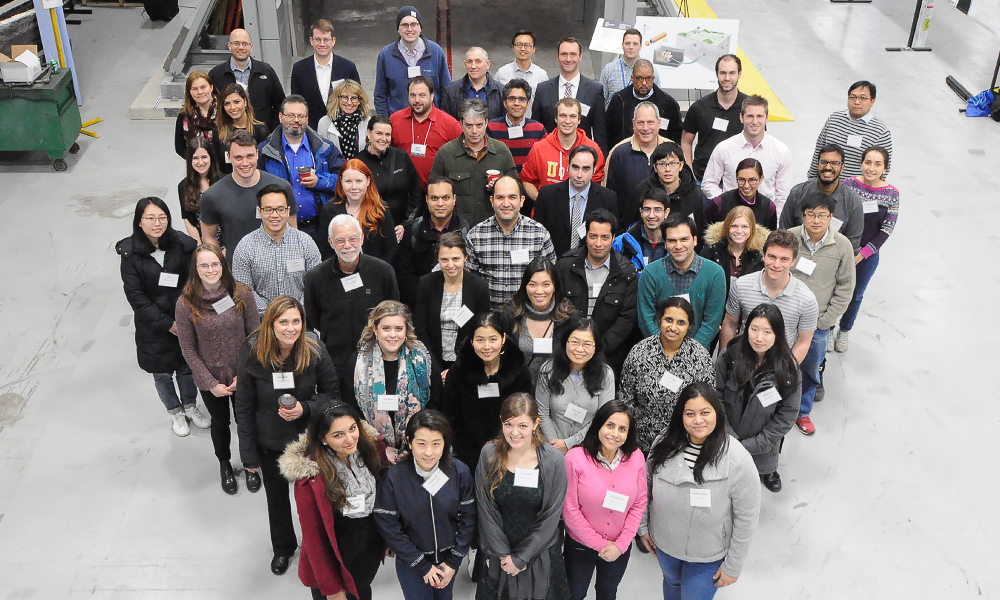An academic day at the Nuclear Waste Management Organization's (NWMO) proof test facility provided an opportunity for scientists working on different aspects of the Adaptive Phased Management (APM) project to share their expertise.
Fifty-one academics from five universities, as well as scientists at the NWMO, gathered at the facility in late February to exchange information on how their research is contributing to Canada’s plan for used nuclear fuel. The day included tours, presentations and student poster sessions.
“It was very interesting to see what other researchers are doing because, in our own research, we are focused on one element of the project. It is nice to pull back and see the big picture,” said Dr. Magdalena Krol, an assistant professor in civil engineering at York University, who attended the event.
Dr. Krol and her team use cutting-edge physics modelling techniques to assess how sulphide moving through rock and clay over millions of years may impact used fuel containers.
Joining Dr. Krol and her group were academics working to understand other aspects of corrosion prevention – scholars from the University of Western Ontario, the University of Waterloo, the University of Ontario Institute of Technology, and the University of Toronto.
“It was great to see several avenues of research converging,” said Dr. Peter Keech, Manager, Engineered Barrier Science at the NWMO. “Multi-directional engagement is so important because this project has so many dimensions.”

